When you are told to picture The Beatles, the likely chance is that you think of their simple, catchy love songs, which is to do a disservice to the band’s latter work in expanding and diversifying the musical scene then, now, and forever. All of this without getting political…well, almost. One song that sticks out is The Beatles’s 1966 song “Taxman” off of the Revolver album, a sharp-tongued tune that serves as a criticism of the then-British government’s tax hikes.
So, here, we discover just how “The Quiet Beatle” became so outspoken, writing one of the most overtly political songs in The Beatles’s repertoire: “Taxman”.
Introduction
One, two, three, four
One, two (one, two, three, four!)
This introduction is fairly commonplace today but was certainly not regular for the time. It is widely accepted The Beatles are one of the most revolutionary and pioneering bands of all time and this is an example of that.
“I Feel Fine” is the first commercial rock song to feature feedback, showing similar pioneering work from “The Fab Four”.
This count-in is now more common but would have been a unique introduction during the song’s release in 1966. Despite its rarity, it had been used on earlier Beatles tracks, such as “I Saw Her Standing There”.
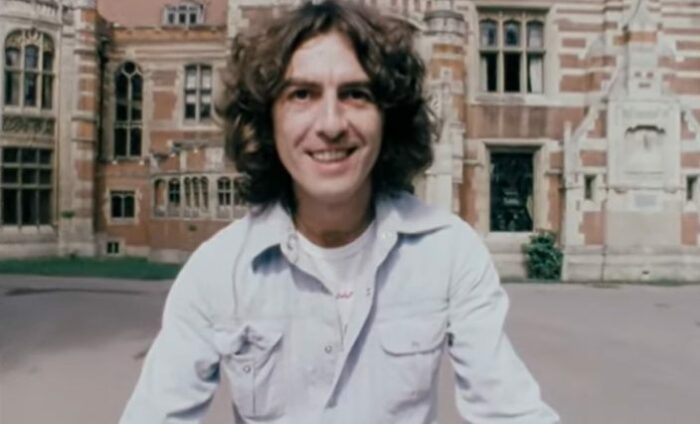
It also starts earlier than presumed, starting on the three beat rather than the presumed fourth.
Another interpretation is this count-in, due to its rhythm not matching up with the song, is actually the taxman character, counting his money.
Verse 1
Let me tell you how it will be
There’s one for you, nineteen for me
The authoritative first line “Let me tell you how it will be” immediately grabs the listener. A more aggressive and hostile tone, this opening line shows how significant a move away from the traditional Beatles style Revolver was, right from the first track. The Ultimate Music Guide: The Beatles calls Revolver “pop’s Great Leap Forward, both the herald of a new musical development, and exemplar of what might be achieved in that new age.” George was a fan of the Batman TV series, which influenced the music.
The mainstream love songs made by The Beatles. This is further illustrated by Ian MacDonald who describes in Revolution In The Head a “stark…bass riff against fuzz-toned off-beat guitar chords.” This sound showed a move away from commercial pop standards to a sound more like main rivals The Rolling Stones. After all, what would 1960s teenage girls know or care about taxes, especially in a country many fans were not living in?
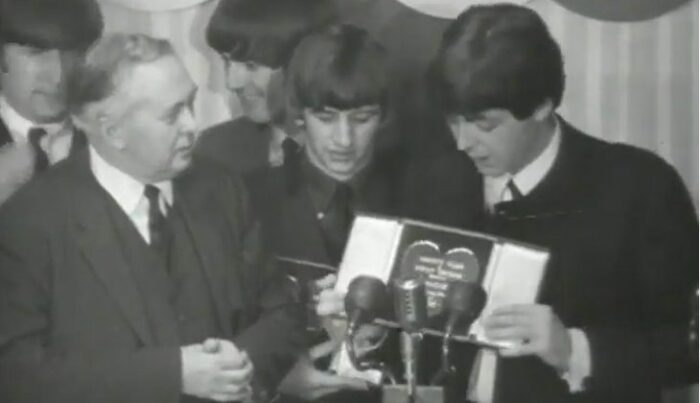
“One for you, nineteen for me” shows George’s ire at the new supertax for those in the top wealth bracket. Considering this, it should not be surprising the then-Prime Minister was from the Labour Party: Harold Wilson (1964-’70, ‘74-’76). The Beatles had even met and been friendly with the PM, doing so on several occasions. The Northerns met when The Beatles got MBEs in the 1964 Wilson-approved honours list.
This hit hard for Harrison who had just started making a fortune after a life going up amidst an impoverished background. George described it as being “a heavy penalty to pay for making money.”
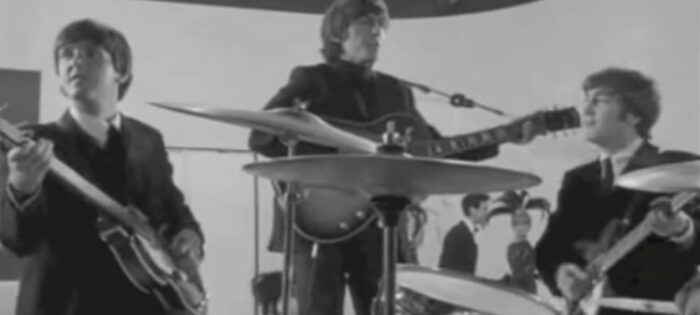
The supertax on the top earners was a chuffing 95%. The book A Hard Day’s Write: The Stories Behind Every Beatles Song by Steve Turner writes that the tax “meant paying 19 shillings and 3 pence (96p) out of every pound in tax.” This fits with “one for you, nineteen for me” with 19/20 (95%) taken by the taxman leaving 5%.
The tax rate was as high as 98% during the 1960s with a 15% surtax added to the already exorbitant 83% tax rate.
Chorus
‘Cause I’m the taxman
Yeah, I’m the taxman
In these lines, George cultivates the idea of the taxman as acting as a greedy tyrant. Rather than blaming the government, a stereotypical gluttonous caricature of the wealthy is created, robbing all the riches he can to get as flamboyantly wealthy as possible. It is, as John Lennon described it, an “anti-establishment tax song.”
In fact, so much so that George Harrison learned that due to tax hikes, he was not too far from the possibility of bankruptcy. Harrison felt punished for working so hard whilst others the song focuses on others getting rich by deducting finances from him, despite the fact taxmen are government workers who do not reap the profit from taking others’ money.
This evil, gluttonous taxman idea was not just an idea The Beatles established as just a few months earlier, The Kinks released “Sunny Afternoon” the following year with the lyric “Save me, save me, save me from this squeeze” supposedly a reference to Harold Wilson’s freeze and squeeze credit scheme to tackle inflation. More obvious was the blunt opening line: “The taxman’s taken all my dough”; “dough” being a slang term for money.
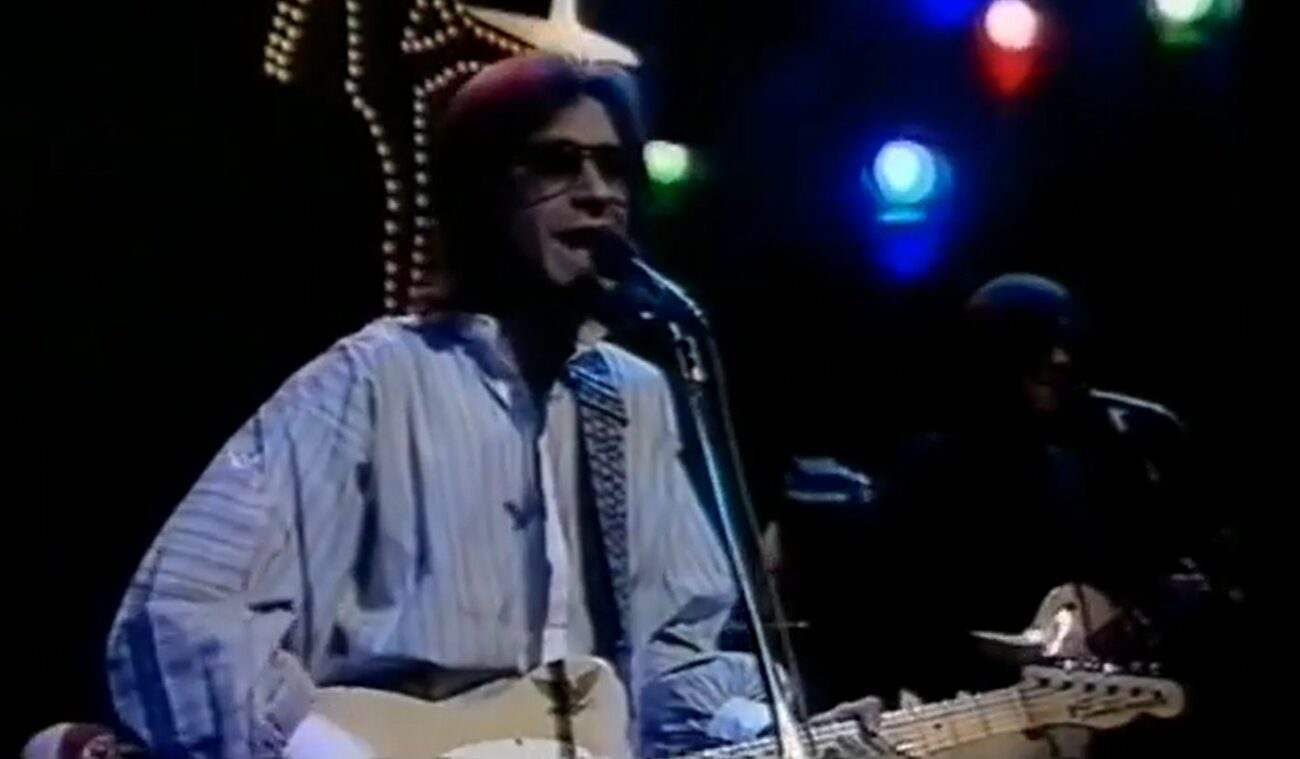
Talking of anti-supertax bands, Sean O’Hagan of The Guardian too wrote that “The Rolling Stones pitched up in the south of France in the spring of 1971 as reluctant tax exiles fleeing the Labour government’s punitive 93% tax on high earners.” The band did so before the release of Exile On Main St.
Verse 2
Should five percent appear too small
Be thankful I don’t take it all
In the years prior to the ‘60s, taxation had continually grown, in large part due to the fallout of the Second World War.
It is as if the government wants to “take it all”, with the 95% rate. They only get 5% non-taxed but Harrison says he is lucky, in a way, they are not taxed full rate at 100%.
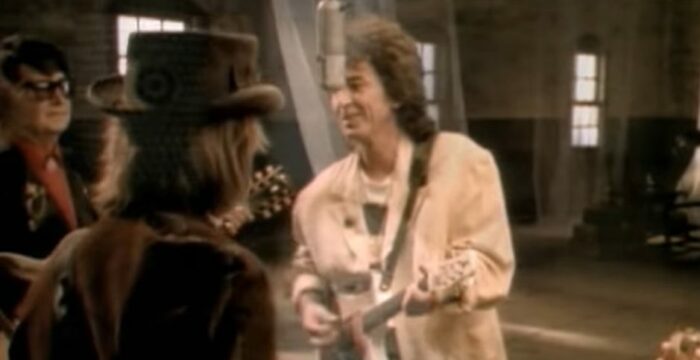
Beatles accountant Harold Pinsker even remarked how high the taxation was: “the first £100,000 earned was taxed at 87.5% and the second at 98%.”
This was so high it forced The Beatles to create their own record label, the punnily-named Apple Corp., which allowed them to pay the lower rates of corporation tax introduced in 1965 under the Finance Act. The Beatles would still have issues with their business partners, as shown by Abbey Road track “You Never Give Me Your Money”.
In an article from the Cuepoint website, it is explained that the point of Apple Corps. was to “bring the band’s enterprises together for tax purposes, so that instead of paying nineteen and sixpence in the pound the Beatles paid only sixteen shillings (there were twenty shillings in the pound). The label’s original directors were Clive Epstein, Alistair Taylor, Geoffrey Ellis, a solicitor and an accountant, and the idea was that they would quietly announce to the tax authorities that they would be opening a string of shops.”
Fellow Beatle Ringo Starr also added: “We went into one mad scheme where we paid a guy to go and live in the Bahamas and hold our money for us so it would be tax-free. And in the end we had to bring all the money back, pay the taxes on it and pay this guy. So we might as well have just left it where it was.”
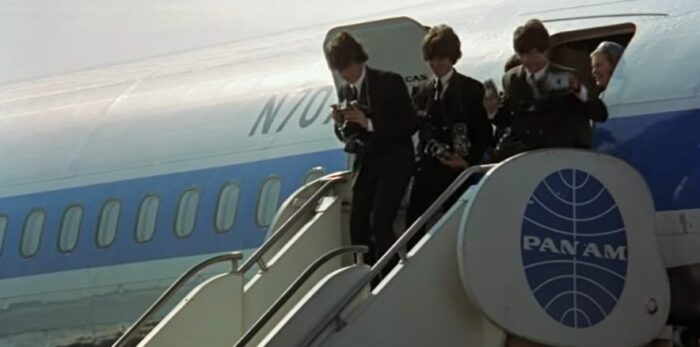
Using the GOV.UK website, the charge today would be 45%, provided that George earned over £150,000 (over £11,500 in 1966 money).
The original lyrics to this verse were “You may work hard trying to get some bread/You won’t make out before you’re dead”, before undergoing a lyric makeover, likely with the aid of other Beatles (more on that later).
Chorus (2)
‘Cause I’m the taxman
Yeah, I’m the taxman
Bridge
If you drive a car, I’ll tax the street
If you try to sit, I’ll tax your seat
If you get too cold, I’ll tax the heat
If you take a walk, I’ll tax your feet
Taxman!
Collectively, this satirises the ludicrous amount of taxes imposed in the UK on any and everything. It uses a rhyming quartet of actions, paired with parodical taxing of the respective concrete nouns.
Interesting Literature’s Dr Oliver Tearle adds: “The idea of the UK government taxing everything they can think of—the seat people sit on, the street they drive on, the heating they require to keep warm, even their own feet if they want to go for a walk—is built up from the probable (streets are taxed, of course, in a sense: in Britain, council tax pays for their upkeep, and for roads to be mended and maintained) to the ludicrous and Orwellian (the notion of encroaching on a Briton’s individual liberties by taxing them even for going for a walk!).”
Whilst Harrison is being hyperbolic, using comic relief, there is an underlying statement that it is not completely unlikely that more and more may be taxed in order for government redistribution.
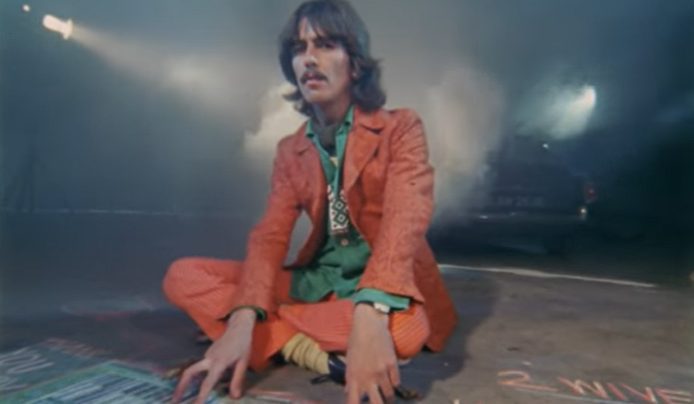
To briefly diverge from a lyrical breakdown, the following guitar solo was performed by Paul McCartney after George failed to execute the solo effectively. George was displeased (but decades later changed his stance) when record producer George Martin asked Paul, who was himself was reluctant to spend time working on “The Quiet Beatle”’s compositions. Via Ian MacDonald in Revolution In The Head, Paul’s guitar solo was “a savage seven-bar affair that picks up the octave jump in the riff, adding a scintillating pseudo-Indian descending passage en route.”
Chorus (3)
‘Cause I’m the taxman
Yeah, I’m the taxman
Verse 3
Don’t ask me what I want it for
(Ha Ha, Mr Wilson)
There is no ambiguity at this line—a direct reference to the then-British prime minister Harold Wilson. Labour’s Wilson, an obvious socialist, made economic redistribution a priority, creating a higher tax rate for the richest, backing up the 1964 Labour manifesto: “Tax policies will contribute…encourag[ing] the right type of modern industry.” It continued, “above all the general effect of our tax changes will be to stimulate enterprise, not to penalise it.”
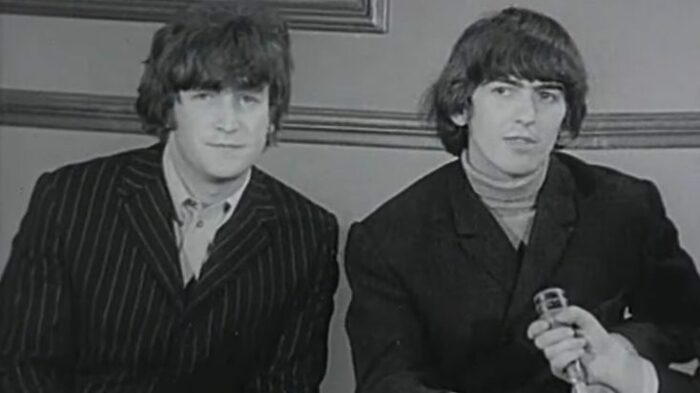
There was no original mention of Wilson, that was part of a later revamp, perfected by John Lennon. John helped the youngest member despite being begrudging to do so, saying: “I didn’t want to do it…but because I loved him…[I] bit my tongue and said ‘Okay.’” He recounts Paul was too dedicated elsewhere to help so he was the only person Harrison could turn to. Engineer Geoff Emerick said in his book Here, There And Everywhere that “George Martin always seemed a bit concerned about both the quality of Harrison’s compositions and the amount of time being spent on them, which tended to make Harrison a bit self-conscious”, thus Lennon’s intervention.
It is more than likely that the more political John advocated for the name drop. With the mention, Harold Wilson became the first living person to be mentioned in a Beatles track.
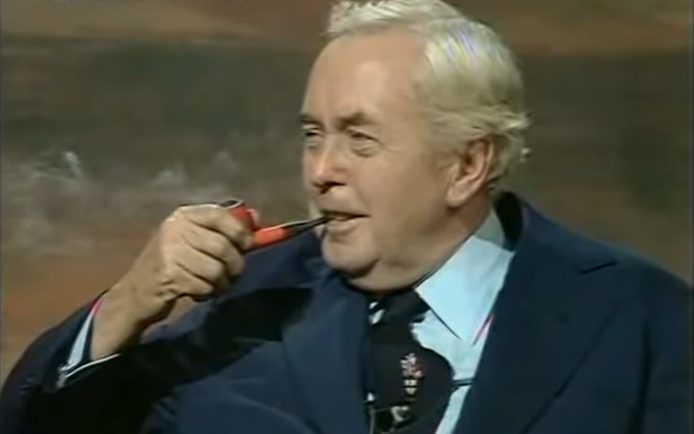
As for the line “Don’t ask me what I want it for”, it implies that the tax is not spent visibly or appropriately. Taxes, of course, help pay for public services yet The Beatles are from Liverpool in the north, with the north of England traditionally unfunded. Even today, the north/south divide is in effect with London the main focus of the UK, which is detrimental to northern cities like Liverpool.
If you don’t want to pay some more
(Ha Ha, Mr Heath)
For the sake of balance, also mentioned in the song was leader of the opposition, the Conservatives’s Edward (often known as Ted, for short) Heath.
Ted was, at this point, an ex-Shadow Chancellor and future prime minister, the latter after a surprise general election victory in 1970—an election called by Wilson.
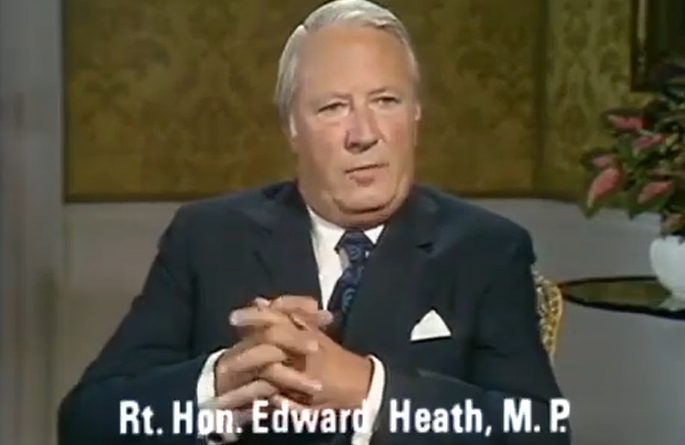
The respective party leaders absolutely hated each other in real life, so the mention of one name without the other would create a partisan effect on The Beatles’s audience. As The Times put it: “For the ten years between 1965 and 1975, Edward Heath and Harold Wilson went at it hammer and tongs. They loathed each other with a passion, despising everything that the other stood for.”
On the Anthology 2 album from 1996, take 11 is used in which the names are replaced with the once-repeated line “Anybody got a bit of money?”. Wilson had died a year earlier whilst Wilson was a far memory hence the shake-up to ensure the tune was neither passe nor irrelevant in a new age.
Chorus (4)
‘Cause I’m the taxman
Yeah, I’m the taxman
Verse 4
Now my advice for those who die (Taxman!)
Declare the pennies on your eyes (Taxman!)
George, generally seen as the most spiritual of the band, here makes a reference to the Ancient Greek tradition of Charon’s obol.
Charon required that the eyes of those who die to have coins placed in their mouth prior to burial. This payment to Charon was sufficient to pay for a placement in the Underworld.
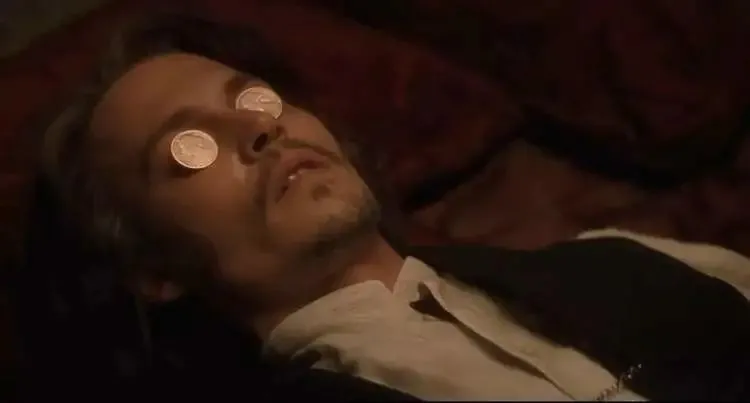
In the context of this song, the coins are placed over the eyes. The coins over the eyes are preserved, declared as taxable income otherwise the taxman’s wrath will be felt. Even as you die, you are not exempt from the taxman.
As Benjamin Franklin said—in one way or another—“nothing is certain except death and taxes.”
Chorus (5)
‘Cause I’m the taxman
Yeah, I’m the taxman
Outro
And you’re working for no one but me (Taxman!)
Once again, George feels punished personally as very few, except those in the top-earning percentile, are so heavily taxed. The taxman is almost working out of specific spite to personally take away Harrison’s money.
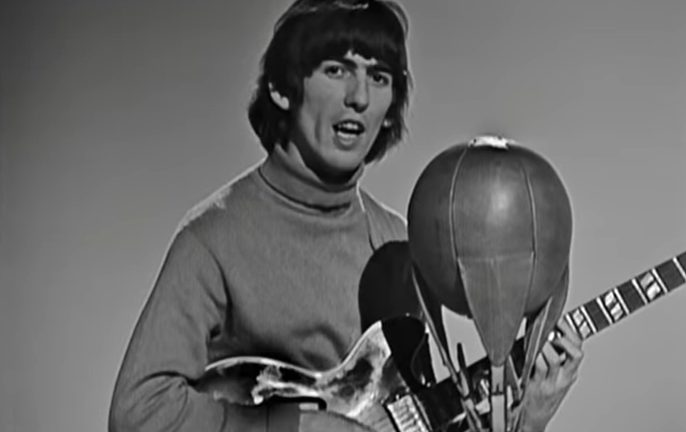
In all, the word “taxman” is sung 14 times.
Epilogue
Taxman was described brilliantly by Philip Norman, author of Shout! The Beatles In Their Generation, in a single sentence: “Taxman,” not a love song but a bitter satire written as well as lead sung by a chronically bitter George Harrison, railing against the huge portion of the Beatles’ earnings due in income tax under jolly Mr. Wilson.”
Yes, it is a song about taxes, for better or for worse. Whether you see the song as a hard-working rebel fighting against governmental injustice or over-reactionary moping of the overtly wealthy, the single is much more than merely a song about taxation.
The song is an early sign of a new direction for The Beatles with another big step taken from the working of previous album Rubber Soul, which itself diverted away from the typical Beatles sound. No longer were simple, charting love songs the formula The Beatles followed but as truly great songwriters on any and every subject matter; this just so happened to kick off with a song about taxes.
Experimentalism expanded further as following albums saw more diverse songwriting explorations on topics from deliberate nonsense (“I Am The Walrus”), racoons (“Rocky Raccoon”), and murders (“Maxwell’s Silver Hammer”), to name a few. Some of the band’s most acclaimed hits were produced in the era when the band had evolved and developed. And the start of that period was born out of George’s hellacious takedown of the British government.
“Helter Skelter” may be the first heavy metal song but the seeds were always there, with “Taxman” serving as the catalyst for a revolution that would craft the music industry into change forever.
If George was ever seen as an afterthought, he proved here that he was just as talented as his fellow contemporaries, even if he would never quite get the recognition he truly deserved. George stayed true to his word and proved “I wasn’t Lennon or I wasn’t Mccartney. I was me…If they can write them, I can write them.”

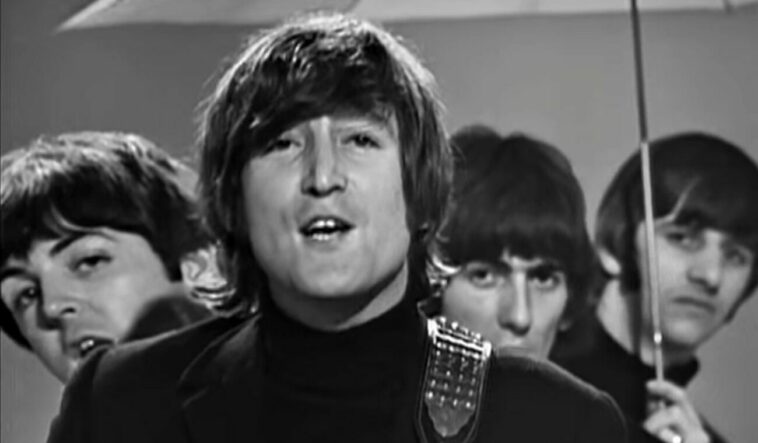
Great article but Ringo is the oldest Beatle not John.
Thank you.
I did know that yet for some reason always forget and assume John is the oldest.
The piece will be updated.